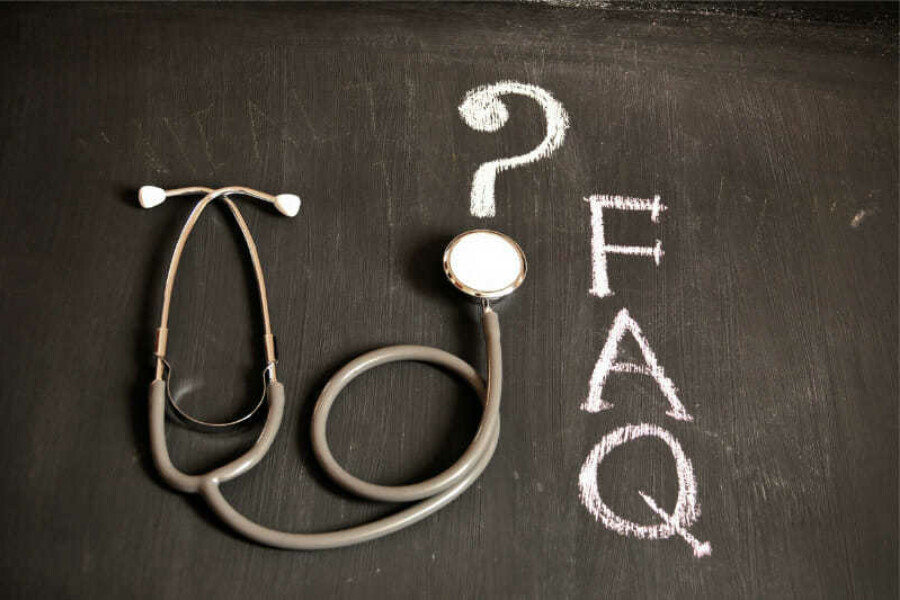Frequently Asked Questions about Varicose Veins

If you are currently suffering from varicose veins or at risk of developing them in the future, here are a few helpful answers to common questions about venous health.
Varicose veins are a common circulatory disorder, affecting as many as 23% of American adults. Despite its prevalence, however, many patients still have questions about them, with many victims having little understanding of their condition or possible courses of treatment. We’ll clarify some of the more common queries about varicose veins to help you better understand them.
Q: Will my diet affect my varicose veins?
A: In a word, yes. What you eat can improve or exacerbate your varicose veins. Eating more colorful fruits and vegetables and high-fiber foods, for example, will lead to a healthier body in general and in turn, healthier veins. In contrast, salty foods puts greater pressure on veins by encouraging water retention. Similarly, dairy and red meat minimize consumption of foods that can worsen varicose veins by promoting constipation like, another source of excessive pressure on veins.
Q: Who is at the highest risk of developing varicose veins?
A: While anyone can suffer from varicose veins, women are more likely to develop them than men. Pregnant women are at a particularly high risk. It’s also true, however, that about 42% of men experience venous insufficiency by the age of sixty. Regardless of their sex or age, people with a family history of varicose veins are generally more likely to develop them.
Q: Can spider veins turn into varicose veins?
A: In some cases, developing varicose veins can be confused with spider veins, but in general, the two conditions are unconnected. Spider veins are caused by much milder swelling; while they may be more visible or darker than normal veins, they rarely protrude as significantly as varicose veins, and are usually much less painful.
Q: Are compressions stockings actually an effective treatment?
A: Compression stockings can be a highly effective treatment for patients with varicose veins or another chronic venous insufficiency. By applying direct pressure to the afflicted veins, these garments stimulate blood flow in them, reducing inflammation and preventing blood from accumulating. Nevertheless, compression stockings should be worn to complement a treatment plan, and you should always ask a doctor about which type of stocking is right for you.
Q: If I have varicose veins, should I change how I exercise?
A: While greater weight can put increased stress on veins, not all forms of exercise benefit your veins. Walking, swimming, stationary biking, and other gentler, low-impact activities are best, since they place the least amount of pressure on veins. In contrast, running on hard surfaces and heavy weight lifting can sometimes overstress your evins. Regardless of your fitness regimen, you should wearing comfortable, properly fitting shoes whenever you exercise.
Q: Will one procedure eliminate my varicose veins?
A: A short venous procedure such as a vein ablation can successfully eliminate or greatly diminish varicose veins, but since varicose veins are often caused by a genetic predisposition, there is a slight chance of a recurrence. The type of treatment you receive will also affect the possibility of another outbreak. Vein stripping, for example, has proven much less effective than newer techniques like ablation and sclerotherapy, with many patients experiencing pain and inflammation again within a few months of their stripping procedure.
Q: What will happen if I leave my varicose veins alone?
A: When left untreated, varicose veins can result in sores, skin ulcers, blood clots, and even deep vein thrombosis (DVT). It’s best to treat varicose veins as soon as possible to avoid these costly and, in the case of DVT, potentially life-threatening complications.
As unpleasant as they can be, varicose veins can be easily treated. If you have further questions about them or are currently looking for treatment, contact a qualified vein specialist today and schedule an appointment.